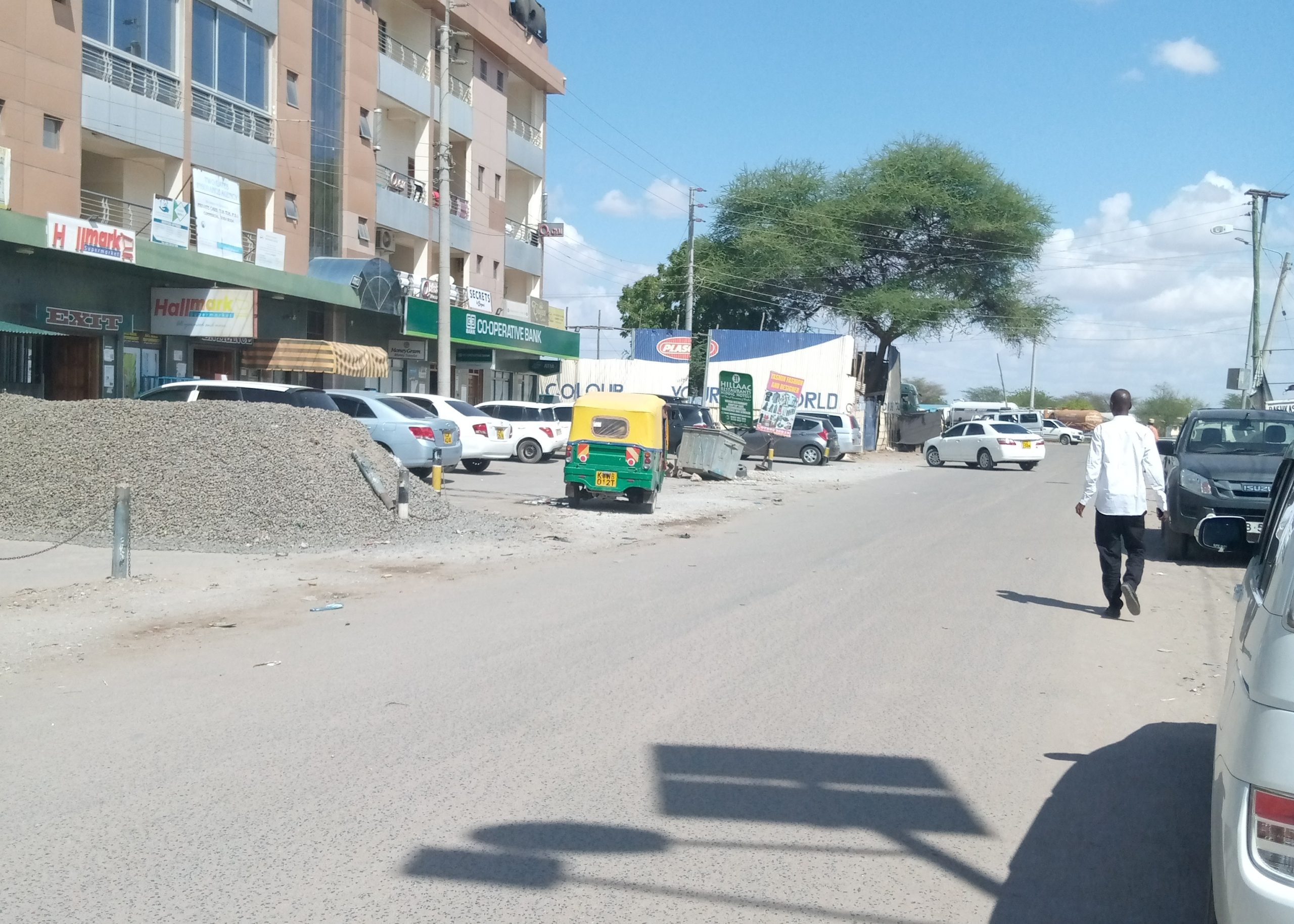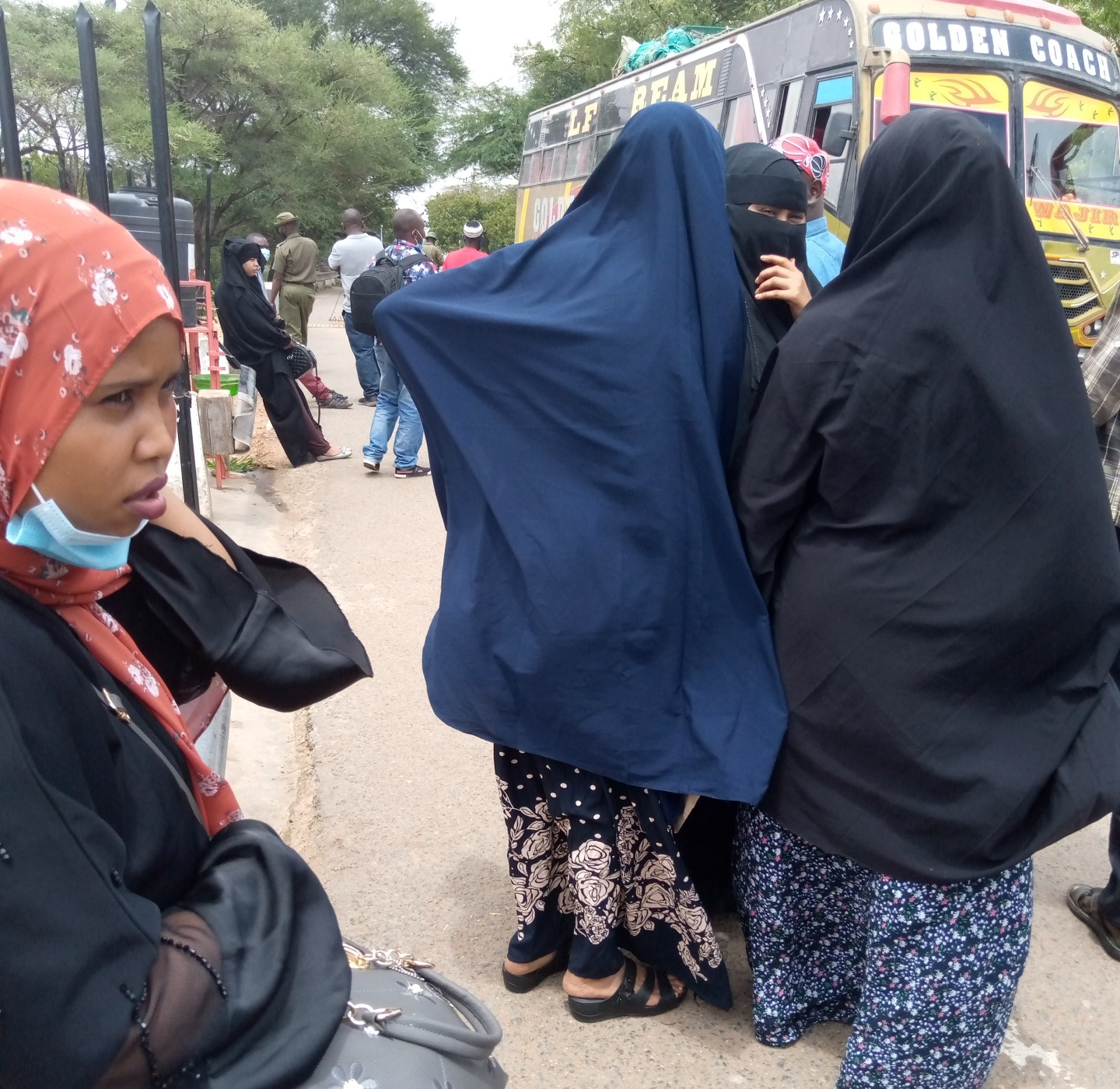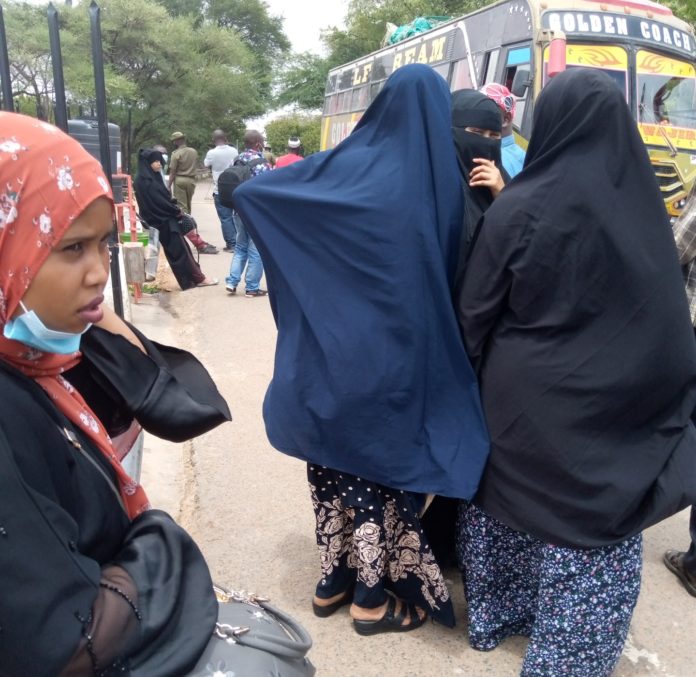By Mary Mwendwa
Nairobi, Kenya: It is exactly 1.00 pm at a famous long-distance bus stop on 9th street of Eastleigh estate in Nairobi capital. The street is overcrowded with all sorts of people; from cart pullers to hawkers, matatus touts yelling at the top of their voices to ordinary civilians rushing towards daily chores.
Business is seemingly thriving here.
With traders spreading out a concoction of wares outside shop verandahs and pavements among many beehives of activities including khat sellers and vegetable hawkers.
Bus companies booking offices and parking areas plying the Northern frontier region, Mandera, Wajir, and Garissa are also located on this street. Additionally, companies for the Eastern region- Isiolo, Marsabit, and Moyale have set their base in Eastleigh too.

Eastleigh is a famous business hub for Nairobi residents. Here all sorts of goods ranging from electronics, clothes, hardware among many others exist. Business empires are owned by rich Somalis of Kenyan origin.
Upon inquiry of why the bus companies decided to put their base in Eastleigh, I was told that most of their passengers reside in the area, therefore it is easier for them to board from there.
When covid-19 was first reported in Kenya, Nairobi was one of the hot spots and highly populated Eastleigh was the first estate to be put on lockdown.
The covid-19 curve in Kenya has been flattening in the last months, but lately, numbers have been going up. Many people are not adhering to the social distancing rule here, while others have masks on but tightly wrapped under their chins.
Emirates bus Company has its booking offices here, one bus is hooting as a young tall dark guy asks me if I want to book for a bus to Garissa.
Ahmed Ali, a middle-aged man strikes a conversation with me, “ Madam you want to go to Garissa tomorrow, this is a very good bus company, it has been on this route for over 20 years.”
“ Madam unataka gari ya kwenda Garissa ya saa ngapi, Madam which departure time do you want to book a bus to Garissa ”? Ali asks. I quickly say mid-morning, he tells me that I can only get a bus for 11.30 am or 12 pm the following day at 1,300 KSH. I get in the office and pay the amount.
After paying I inquire about the bus sitting arrangement, the conductor tells me that they follow government rules about covid-19 infections.
The next day I boarded the Garissa bound bus, Emirates at 12.00 pm. On entering the bus no one bothers to check whether I have a mask on or not. Most of the passengers inside the bus do not have masks on while those who have they are on their chins.
I sit on a two-seater next to the driver as we depart for our journey to Garissa. It did not take too long before a passenger was picked along the way to fill the empty seat next to mine. On enquiring why they were letting someone sit next to me in this covid-19 times, the conductor told me they have to get some other passengers to allow them to make some profit.
By the time we arrived in Garissa, the bus was full to capacity with no one even the police at the barrier checking on how many passengers were disobeying the social distancing rules. The only checks we went through were for Kenyan citizens with valid documentation of their citizenship status and screening of luggage.
In Garissa town, the scene of not social distancing is the same. I get to a stage where bus companies going to Wajir and Mandera are parked. I meet Yassin Khalid, a conductor plying Wajir route, Liban bus at the stage. “ Here we try our best to get a few passengers on the bus, but you see we cannot leave a passenger at the roadside, we will be losing money. This issue of social distancing in our buses is just a tell-tale, we cannot obey it fully.” Khalid says.
Khalid reveals that it is a challenge for people in Garissa to wear masks, even in public long-distance vehicles, they have no care for the social distancing rule. “ We have no covid-19 in this region, why would we social distance for something we do not have.”

Similar scenes are replicated with Garissa Coach buses. At the booking offices, many passengers are queuing to book their tickets for the following day.
I get a sneak view of one of the buses parked destined for Nairobi. Many people are sharing seats, very few are empty. I ask the conductor if they follow rules of social distancing. He does not want to reveal his name but is willing to give information, “ How do you expect us to make money, even me to be paid. If this bus goes to Nairobi with half the capacity of passengers we will not make enough money. We are in business, let coronavirus sort itself.” He dismissed sounding exasperated.
Over 39 Million of covid-19 cases have been reported worldwide, Kenya has so far reported over 44, 000 infections with over 800 deaths. There are indications that a second wave may be experienced because of the numbers that have been rising in the last few days.
According to World Health Organization( WHO), research has shown that COVID-19 spreads between people through direct, indirect (through contaminated objects or surfaces), or close contact with infected people via mouth and nose secretions. These include saliva, respiratory secretions, or secretion droplets. People who are in close contact (within 1 metre) with an infected person can catch COVID-19 when those infectious droplets get into their mouth, nose, or eyes.
Public long-distance vehicles like those going to Garissa, Mandera, and Wajir will need to strictly follow the social distancing rule of at least 1.5 meters sitting in the bus to help reduce infections among travelers.














